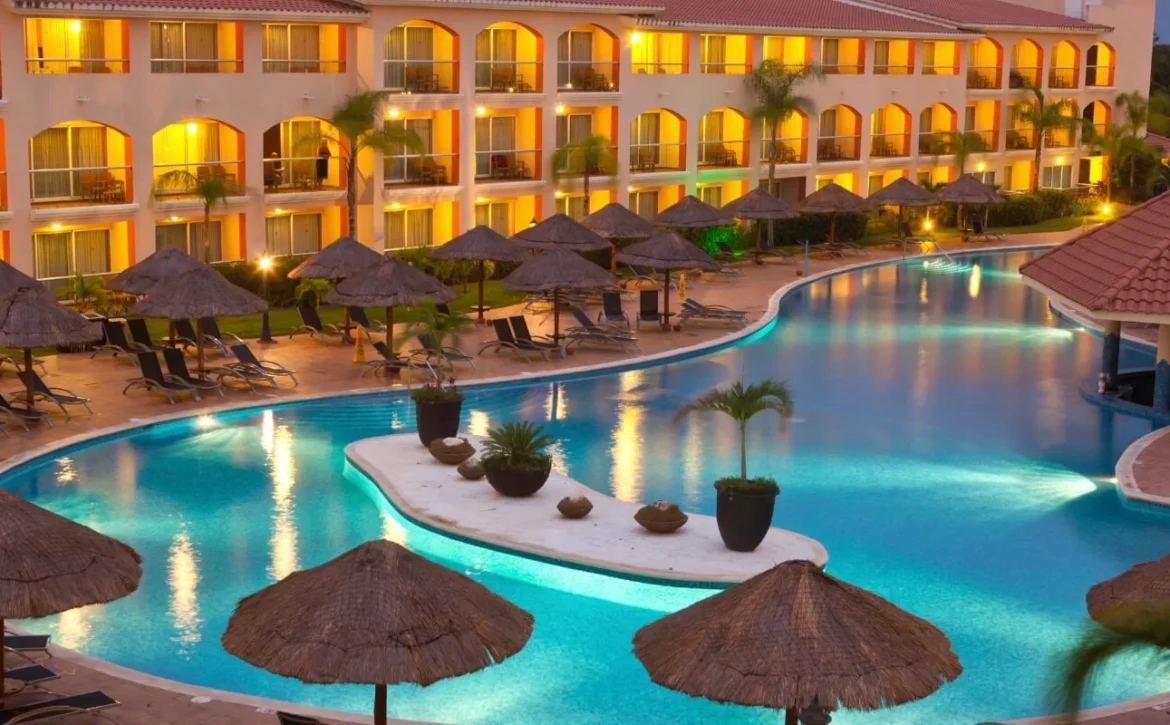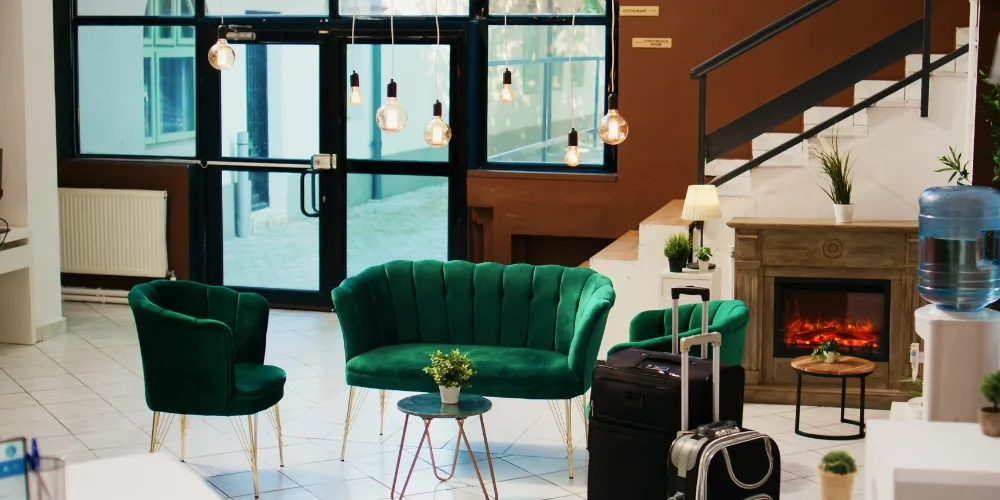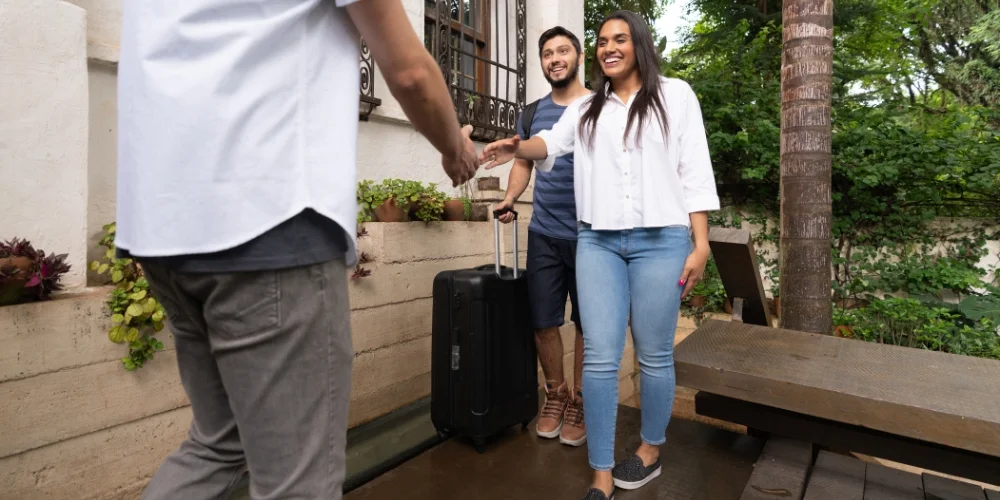Managing Hotel Management Contract Renewals: A Strategic Guide
Embarking on a strategic journey through the intricate landscape of hotel contract renewals is a crucial endeavour for any savvy hotel business owner. Here, unravel the multifaceted dimensions associated with the end of a contract and what it means for your hotel business.
From cultivating a proactive vision for a successful future to navigating the implications of contract decisions and exploring alternative options like the intriguing Manchise Agreement, our guide aims to equip you with the knowledge to master the complexities of this critical phase.
What the End of a Contract Means for Your Hotel Business
Nearing the end of a contract can be a pivotal moment for a hotel business. It signifies the conclusion of a formal relationship between the hotel owner and the brand. This could mean the cessation of brand support, access to proprietary systems, and the potential loss of brand recognition.
However, it also presents an opportunity for the owner to reassess their business strategy and consider new avenues for growth. It’s important to understand the end of contract and renewal provisions in your agreement, particularly key dates for issuing notices.
Proactive Vision for a Successful Future
The renewal of contracts, particularly in the hotel industry, is a significant process that necessitates careful planning and foresight. It’s not uncommon for hotel owners to underestimate the time and effort required for this process, leading to hasty decisions or missed opportunities.
It’s important to be proactive when dealing with ended contracts and contract renewals. Here are some of our top tips to help you stay on top of things:

Act Now, Not Later
Timely decision-making is crucial to minimise operational hiccups. Delays in decision-making can lead to prolonged periods of uncertainty, which can negatively impact staff morale, customer satisfaction, and overall business performance.
Starting the evaluations and planning early allows ample time to assess the current situation, explore options, and negotiate terms with some competitive tension. It’s also important to communicate your decisions effectively to all stakeholders so no one’s in the dark during the in-between contracts phase.
Define Objectives and Do Your Research
Clearly outline what you want from the contract renewal. This could be better terms, lower fees, more support, or even a complete change of brand to leverage alternative market positioning or change of management.
Once you know what you want for the future of the hotel, it’s a good idea to conduct some research to give you a better idea of how to get there. Understanding the current market conditions, competitor strategies, and industry trends will help inform your decisions and strengthen your negotiating position.
Strategic Renewal Planning
Now it’s time for strategy to take centre stage. Strategic renewal planning involves developing a proactive plan and vision well in advance of the end of a contract. It includes assessing the current market conditions, evaluating the performance of the brand, and considering the future goals of the business.
For hotels with a significant Meetings, Incentives, Conferences, and Exhibitions (MICE) business, the lead time for change can be even longer. MICE bookings often occur 1-36 months in advance, so any changes to the brand or operator can significantly impact this segment of the business.
Seek Expert Advice
Finally, consider engaging a consultant or advisor who specialises in hotel contract renewals, like the team at Axsia HTL. We can provide valuable insights, advice, and support throughout the entire process.
Remember, the goal of the renewal process is to secure a contract that aligns with your business goals and sets your hotel up for future success. So, take the time to plan, prepare, and make informed decisions. We promise it’s worth the effort.

Analysing Performance and Alignment
With all of that initial brainstorming, researching, and broad vision planning under your belt, you’ll want to analyse your current hotel performance and how it aligns with your business goals.
The end of a contract is the perfect time to do this, but as we said above, be careful not to wait until then – be proactive and look ahead so you have plenty of time to make changes. Three key areas of franchise performance analysis include:
Considering the Owner’s Objectives
Owners should evaluate the performance of the brand or operator against their business goals. This includes assessing whether the brand aligns with the owner’s vision, whether the operator has met the owner’s expectations, and whether the hotel is competitive in its market.
Employing the Right Assessment Metrics
Several metrics can be used to evaluate the performance of your agreement. These include revenue growth, brand reputation, and customer satisfaction. These metrics can provide valuable insights into the performance of the brand and can inform the owner’s decision about whether to renew the agreement.
Updating the Investment Plan
The end of a contract is an excellent time for owners to update their investment plans. This process should involve thoughtful consideration of all the above issues and potential strategies for moving forward.
Given the complexities involved, this process could take up to a year, especially if it involves transitioning to a new brand or operator. Take your time with this step and invest some time into researching and planning any updates to the investment plan, including elements like risks vs rewards.
Evaluating the Investment Horizon: Sell vs Hold
So, let’s say you’ve done some excellent research and planning well in advance of your hotel’s ended contract and you’ve hit a snag: things aren’t looking feasible to hold onto. The first step is not to panic, and the second is to consider whether selling is actually in your best interests.
When deciding to sell a hotel, it’s essential to consider the current market value of the property, potential buyers, and the implications of the sale on your overall investment portfolio. Can the proceeds of the sale be invested into higher-return assets?
On the other hand, if you decide to hold, you must consider the costs of maintaining the property, the potential for revenue growth, and the benefits of continuing to operate under the existing brand or exploring new affiliations.
Often, knowing whether to sell or hold (and even making that final decision) can be tough to do alone. This is where an experienced asset manager can make the process much more streamlined while offering that much-needed external voice of reason.

Alternative Options in Management Structures: The Manchise Agreement
As the end of a hotel management agreement or franchise approaches, hotel owners are presented with many alternatives. These can range from exploring other brands that may offer different benefits such as stronger brand recognition, superior reservation systems, or more extensive support services, to considering different management structures like direct management, leasing, or entering a new manchise or franchise agreement.
One such innovative alternative to traditional franchises is the ‘Manchise Agreement’, a unique business model that combines the benefits of a management contract and a franchise agreement.
Understanding the Manchise Agreement
The term ‘manchise’ describes a brand management contract that can be converted into a franchise agreement, offering benefits to both the brand and the owner. A manchise is structured as a two-phase collaboration between the hotel owner and the hotel brand.
During the first phase, the hotel brand typically operates the property under a short-term management agreement, say three to five years. This allows the brand to establish its presence and standards at the property.
In the second phase, the investor has the option to flip to a franchise, providing the owner with more control over their investment, while still benefiting from the use of a well-established brand.
Manchise agreements offer several benefits to hotel owners. They often provide lower fees, and the optionality owners are seeking. Owners can leverage brand resources and distribution channels more effectively. Plus, if a brand-managed contract is terminated, the owner retains the rights to the brand, avoiding an expensive process to find an alternative affiliation.
Navigating the Implications of Contract Decisions: How to Deal With Change
If you decide to make changes, large or small, to your hotel investment’s structure or operations, it’s helpful to know how to roll these changes out and navigate them with your wider team. Here’s what you should understand:
Legal and Financial Impacts
The legal and financial implications of a franchise or manchise contract decision includes understanding the terms of the contract, the costs associated with renewing or terminating the agreement, and the potential impact on the hotel’s financial performance, staff recruitment and retention.
Business Disruptions
Changing operators or brands can cause significant disruption to a hotel’s operations. This can include changes in operational procedures, marketing strategies, and brand standards. Owners must consider these potential disruptions and plan for them accordingly.
Managing Staff During Change
Staffing is one of the most critical aspects affected by change. Employees may feel uncertain and anxious about their future, leading to increased turnover and difficulty attracting new staff. Clear communication is essential during this period to reassure staff and maintain morale.
A clear strategy should be established on how to retain your team. This could involve monetary rewards, opportunities for career growth, or involving them in the change process. Whichever strategies you employ, they should be communicated early on, so that the team knows you are including them in the change process. This not only helps to alleviate their concerns but also fosters a sense of belonging and commitment to the organisation.

Navigate Contract Renewals With Axsia HTL
The end of a contract can be a time of uncertainty for hotel owners and investors, but with careful planning and evaluation, it can also be a time of great opportunity. By understanding what the end of a contract means for your business and evaluating your investment horizon, you can make informed renewal or change decisions that align with your long-term business goals.
Get the edge over your own business this year with our professional advice here at Axsia HTL. Our team can help you research, plan, analyse, and initiate changes in line with your goals and objectives. Remember, it’s never too early to start planning. Act now and speak to us today!











 Benefits of Following the Preparation Process
Benefits of Following the Preparation Process
 Challenges and Risks of Hotel Franchising
Challenges and Risks of Hotel Franchising